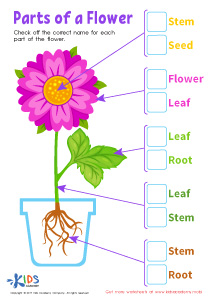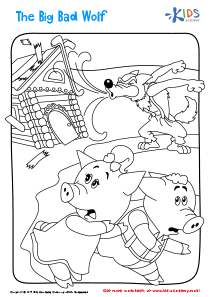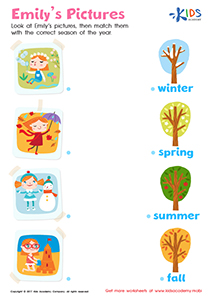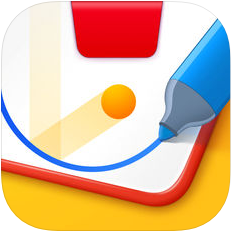Science Lessons | Relationships in ecosystems, Grade 1
0 results
Our Relationships in Ecosystems Lessons are designed specifically for Grade 1 students. Our interactive worksheets and educational videos cover all the basic concepts of ecosystems and teach students about interdependence, adaptation, and symbiosis. The lessons are engaging and fun, allowing students to learn about the relationships that exist within an ecosystem in an exciting way. With quizzes, assessments, and activities, students will have plenty of opportunities to test their understanding. Whether learning about predators and prey or exploring food webs and chains, our Relationships in Ecosystems Lessons will provide an excellent foundation for young learners' understanding of the world around them.
As children grow and learn about the world around them, it's important that they understand the various relationships that exist in ecosystems. These relationships between living and non-living things play a crucial role in maintaining the balance of our planet. Our lessons on Relationships in Ecosystems are designed to help children in Grade 1 understand how these relationships work and why they are important.
Our interactive worksheets are a great way for children to learn about the different types of relationships that exist in ecosystems. For example, they will learn about the relationship between predators and prey, the relationship between plants and animals, and the relationship between living things and their environment. Through these activities, children will begin to see how all living things are connected and dependent on each other.
In addition to our interactive worksheets, our lessons on Relationships in Ecosystems also include educational videos. These videos help children to see these relationships in action and to better understand how they work. The videos are engaging and fun, and they help to reinforce the concepts that are being taught in the worksheets.
Along with these worksheets and videos, we also include assessment quizzes. These quizzes give children the opportunity to test their knowledge and to see how much they have learned. The quizzes are designed to be fun and interactive, so children will enjoy taking them and will feel a sense of satisfaction when they get a good score.
One of the key benefits of our lessons on Relationships in Ecosystems is that they help children to develop critical thinking skills. As they learn about these relationships, they will begin to see the interconnectedness of all living things. They will also begin to understand how small changes in one part of an ecosystem can have a big impact on the rest of the system. This is a valuable skill that will serve them well in their academic and personal lives.
Our lessons on Relationships in Ecosystems also help to foster a sense of responsibility for the environment. As children learn about the delicate relationships that exist in ecosystems, they will begin to see how their actions can have an impact on the environment. They will also learn about the importance of conservation, and how they can play a role in preserving the natural world.
In conclusion, our lessons on Relationships in Ecosystems are an excellent resource for children in Grade 1. These lessons provide an engaging and interactive way for children to learn about the relationships that exist in ecosystems, and why these relationships are important.
















